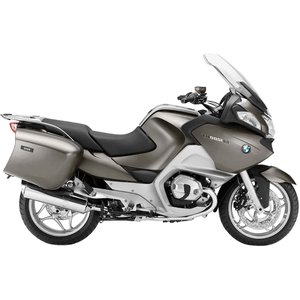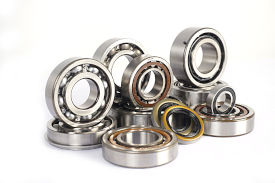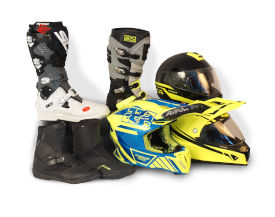BMW R 1200 RT (2005–2009): A Touring Icon Reimagined
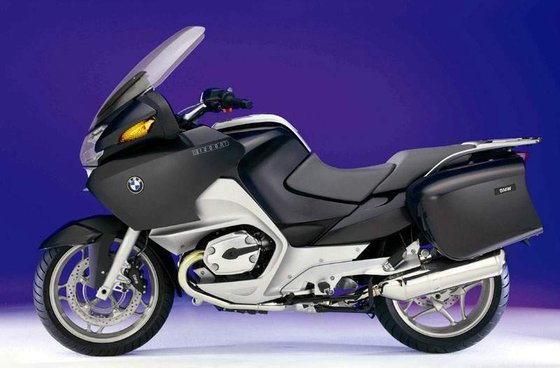
Introduction
The BMW R 1200 RT, produced from 2005 to 2009, redefined the touring motorcycle segment with its blend of comfort, technology, and surprisingly agile handling. As part of BMW’s storied RT lineage, this generation marked a significant leap forward from its predecessor, the R 1150 RT, shedding weight, gaining power, and embracing modern innovations. After spending a week with a 2008 model, it’s clear why this bike became a benchmark for long-distance riders seeking a machine that balances sporty dynamics with mile-swallowing practicality.
Design & Ergonomics
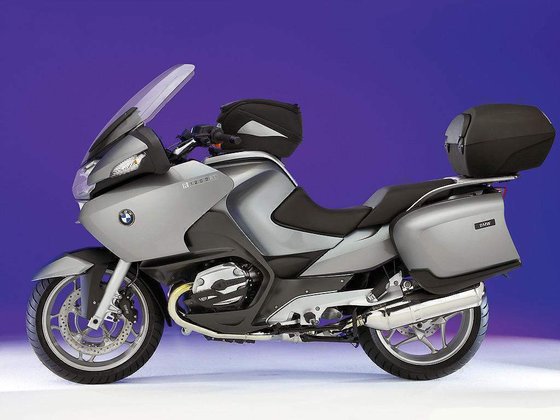
The R 1200 RT’s design is unmistakably purposeful. Its full fairing wraps around the iconic 1170cc boxer engine like a tailored suit, offering exceptional wind protection. The electrically adjustable windscreen is a marvel—tall enough to cocoon riders in still air at highway speeds yet low enough to invite a breeze during relaxed cruising. Integrated mirrors with turn signals streamline the front profile while deflecting airflow away from your hands.
Seating is a highlight. The standard split saddle adjusts between 820–840 mm (32.3–33.1 inches), though an optional low seat drops it to 780 mm (30.7 inches), accommodating riders of all statures. BMW’s ergonomic focus shines here: the upright riding position places minimal strain on wrists and shoulders, even after hours in the saddle. Passengers aren’t neglected either, with generous footpeg spacing and a sculpted seat that avoids the "perched on a suitcase" feel common to many tourers.
Color options like Biarritz Blue Metallic and Titan Silver remain timeless, while the 32-liter hard saddlebags (color-matched to the bike) blend utility with elegance. A 49-liter top case (optional) adds cavernous storage, making this RT a practical companion for cross-continent adventures.
Engine & Performance
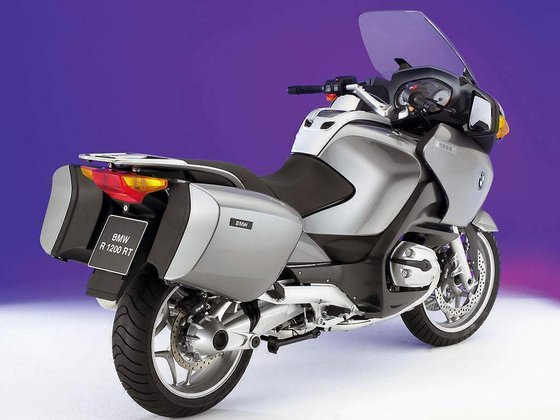
At the heart of the R 1200 RT lies BMW’s air/oil-cooled 1170cc boxer twin, producing 110 HP (81 kW) at 7,500 RPM and 115 Nm (85 lb-ft) of torque at 6,000 RPM. The engine’s character is quintessentially BMW: vibrations are minimal thanks to a balancer shaft, and power delivery is linear, pulling strongly from 2,500 RPM onward. On the dyno, it delivers nearly 100 HP to the rear wheel—a testament to its efficiency.
The six-speed transmission shifts with precision, aided by a hydraulically actuated clutch that’s surprisingly light for a touring bike. The shaft drive eliminates chain maintenance, a boon for riders covering vast distances. Fuel economy is impressive for a 259 kg (571 lb) machine—testers reported 5.3 L/100 km (44.7 MPG) during highway cruising, translating to a 500+ km (310+ mile) range from its 27-liter tank.
Handling & Suspension
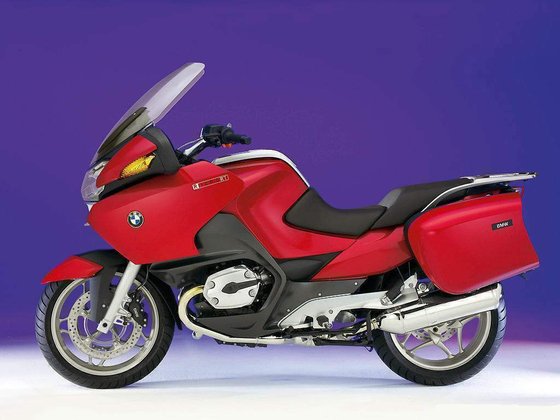
Don’t let the RT’s touring focus fool you. The Telelever front suspension and Paralever rear setup defy conventional expectations. The Telelever’s 35mm stanchions and anti-dive design provide a plush ride over bumps while maintaining razor-sharp feedback during cornering. With 120 mm (4.7 inches) of front travel and 135 mm (5.3 inches) at the rear, it soaks up potholes without wallowing.
Steering is neutral, aided by a 26.2° rake and 116 mm (4.6 inches) of trail. At low speeds, the boxer engine’s low center of gravity makes parking-lot maneuvers effortless. Push harder on twisty roads, and the RT responds with sportbike-like agility, holding its line confidently even with a passenger and luggage. The Bridgestone Battlax tires (120/70-17 front, 180/55-17 rear) strike a perfect balance between grip and longevity.
Technology & Features
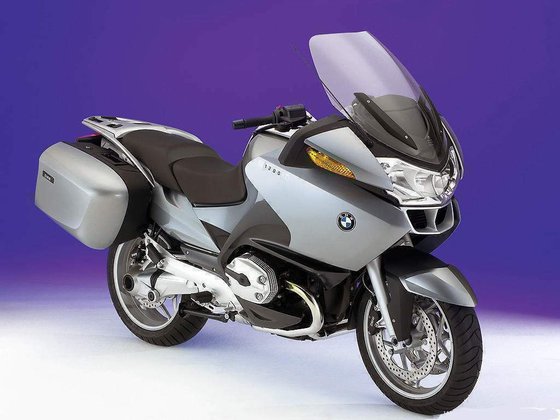
For its era, the R 1200 RT was a tech showcase. Standard ABS (BMW’s Partial Integral system) links the front brake lever to both calipers and the rear pedal, offering reassuring stopping power. Heated grips and seats (optional) extend riding seasons into chilly mornings, while cruise control reduces fatigue on monotonous highways.
The optional Electronic Suspension Adjustment (ESA) allows on-the-fly damping and preload adjustments—a game-changer when switching from solo riding to two-up touring. Less successful is the factory stereo system: while the sound quality is decent, its button-heavy interface distracts from the road.
Competition
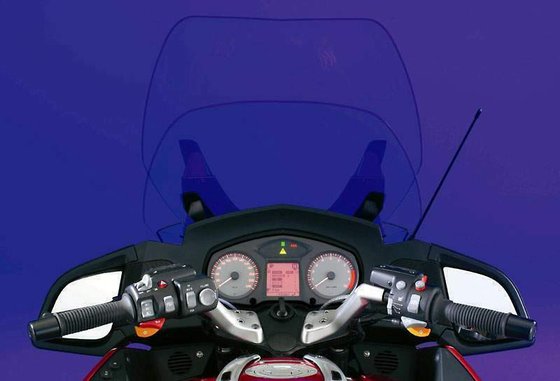
In the mid-2000s touring arena, the R 1200 RT faced stiff rivals:
-
Honda ST1300 Pan European:
Honda’s V4 powerhouse delivers smoother acceleration and a lower seat height (790 mm / 31.1 inches). However, its weight (328 kg / 723 lbs) feels more cumbersome in corners, and the lack of adjustable suspension options limits customization. -
Yamaha FJR1300:
The FJR’s 1,298cc inline-four offers explosive power (145 HP) and a thrilling top-end rush. Yet, its chain drive demands more maintenance, and wind protection lags behind the BMW’s cocoon-like fairing. -
Kawasaki Concours 14:
A sportier alternative with a 1,352cc inline-four and aggressive styling. The Concours excels in acceleration but sacrifices comfort over long hauls, with a firmer seat and narrower weather protection.
Where the RT Shines:
- Shaft drive reliability vs. chain-driven rivals.
- Telelever/Paralever suspension for unmatched stability.
- Customization through ESA and seating options.
Maintenance & Ownership
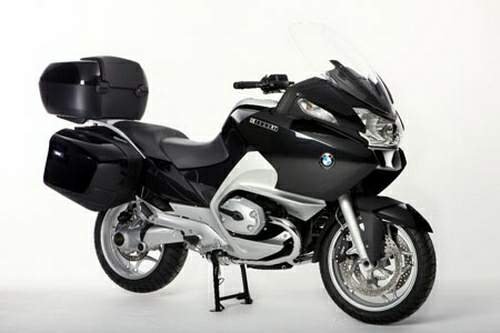
The R 1200 RT is built for longevity, but diligent upkeep ensures peak performance:
- Valve Adjustments: Every 10,000 km (6,200 miles).
- Intake: 0.15 mm (0.006 in) cold.
- Exhaust: 0.30 mm (0.012 in) cold.
- Oil Changes:
- Use SAE 15W-50 (4.0L with filter). Synthetic blends recommended for high-mileage engines.
- Tire Pressures:
- Solo: 2.2 bar front (32 psi), 2.5 bar rear (36 psi).
- Two-up: 2.5 bar front (36 psi), 2.9 bar rear (42 psi).
- Brake Fluid: Flush with DOT 4 every two years.
Common Upgrades at MOTOPARTS.store:
- Aftermarket Windshields: Taller or wider options for enhanced wind protection.
- Performance Spark Plugs: NGK DCPR8EKC (standard) or DCPR8EIX iridium for longevity.
- Suspension Upgrades: Aftermarket shocks for riders seeking more adjustability than ESA provides.
Conclusion
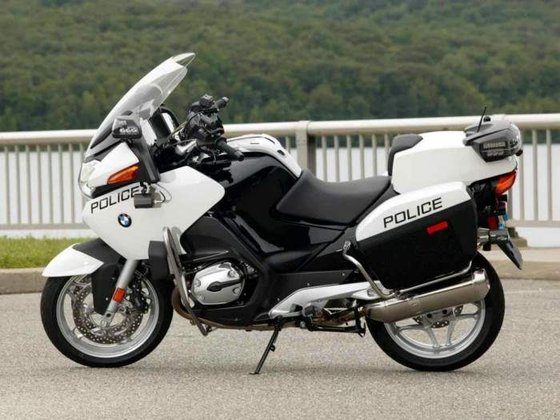
The BMW R 1200 RT (2005–2009) remains a standout in the used touring market. Its combination of comfort, engineering innovation, and unexpected agility makes it a joy to ride whether you’re threading through mountain passes or devouring interstate miles. While newer models have eclipsed it in tech, this generation’s mechanical simplicity and robust build ensure it’s still a wise choice for riders valuing reliability and character.
For owners looking to refresh their RT, MOTOPARTS.store offers everything from OEM-spec maintenance kits to performance upgrades—ensuring your boxer-powered tourer stays ready for the next horizon.
Images shown are for illustrative purposes. Specific parts and accessories may vary.



Specifications sheet
| Engine | |
|---|---|
| Stroke: | Four-stroke |
| Max power: | 81 kW | 109.0 hp |
| Max torque: | 115 Nm |
| Fuel system: | Electronic fuel injection (BMS-K) |
| Max power @: | 7500 rpm |
| Displacement: | 1170 ccm |
| Max torque @: | 6000 rpm |
| Bore x stroke: | 101.0 x 73.0 mm (4.0 x 2.9 in) |
| Configuration: | Oposite |
| Cooling system: | Air/Oil |
| Compression ratio: | 12.0:1 |
| Number of cylinders: | 2 |
| Valves per cylinder: | 4 |
| Dimensions | |
|---|---|
| Wheelbase: | 1485 mm (58.4 in) |
| Dry weight: | 229 |
| Wet weight: | 259 |
| Seat height: | 780-840 mm (30.7-33.1 in) |
| Fuel reserve: | 4 L (1.1 US gal) |
| Overall width: | 905 mm (35.6 in) |
| Overall height: | 1430 mm (56.3 in) |
| Overall length: | 2230 mm (87.8 in) |
| Ground clearance: | 155 mm (6.1 in) |
| Fuel tank capacity: | 27 L (7.1 US gal) |
| Drivetrain | |
|---|---|
| Clutch: | Single dry plate, hydraulically operated |
| Final drive: | shaft |
| Gear ratios: | 1st 2.28, 2nd 1.58, 3rd 1.26, 4th 1.03, 5th 0.90, 6th 0.81 |
| Transmission: | 6-speed manual |
| Final drive ratio: | 2.62:1 |
| Electrical | |
|---|---|
| Battery: | 12V 14Ah maintenance-free |
| Alternator: | 720W three-phase |
| Maintenance | |
|---|---|
| Engine oil: | 15W-50 |
| Brake fluid: | DOT 4 |
| Spark plugs: | NGK DCPR8EKC or NGK DCPR8EIX |
| Engine oil capacity: | 4.0 |
| Gearbox oil capacity: | 0.8 |
| Final drive oil capacity: | 0.18 |
| Engine oil change interval: | Every 6000 km or 2 years |
| Valve clearance (intake, cold): | 0.15 mm |
| Valve clearance check interval: | Every 24,000 km |
| Valve clearance (exhaust, cold): | 0.30 mm |
| Recommended tire pressure (rear): | 2.5 bar (36 psi) / 2.9 bar (42 psi) loaded |
| Recommended tire pressure (front): | 2.2 bar (32 psi) / 2.5 bar (36 psi) loaded |
| Chassis and Suspension | |
|---|---|
| Frame: | Three-section aluminum/steel composite |
| Wheels: | Cast aluminum |
| Rear tire: | 180/55 z-17 |
| Front tire: | 120/70 z-17 |
| Rear brakes: | Single 265mm disc, 2-piston caliper (ABS) |
| Front brakes: | Dual 320mm discs, 4-piston calipers (ABS) |
| Rear suspension: | BMW Paralever, 135 mm (5.3 in) travel |
| Front suspension: | BMW Telelever, 35mm stanchions, 120 mm (4.7 in) travel |



